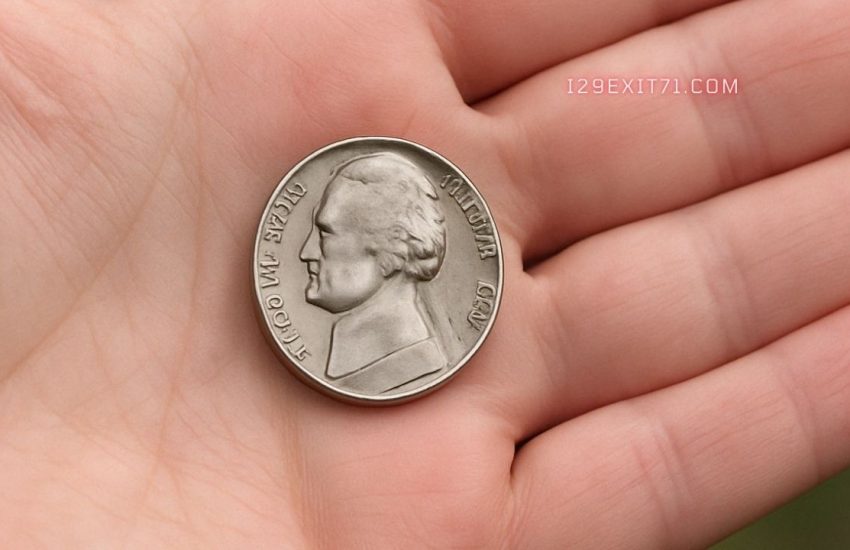A 1964 Jefferson Nickel recently discovered in a drawer has garnered significant attention from numismatists. Experts have identified it as a rare minting error, making it a valuable find for collectors.
This article delves into the details of this unique coin, its distinguishing features, and its potential value.
The 1964 Jefferson Nickel: An Overview
The 1964 Jefferson Nickel was minted in large quantities, with over 1.7 billion coins produced at the Denver Mint and over 1 billion at the Philadelphia Mint. Despite its commonality, certain minting errors from this year have become highly sought after by collectors.
Notable Minting Errors in 1964 Jefferson Nickels
Several minting errors have been identified in 1964 Jefferson Nickels, including:
- Doubled Die Obverse (DDO): This error features noticeable doubling in the inscriptions on the coin’s obverse side.
- Repunched Mint Mark (RPM): Some coins exhibit a “D over D” mint mark, indicating the mint mark was stamped more than once in misaligned positions.
- Struck on Incorrect Planchet: Rare instances where nickels were struck on planchets intended for other coins, such as a 10-centavo coin, resulting in a lighter weight and different composition.
- Full Steps (FS): Coins that display full, uninterrupted steps on Monticello are rare and command higher values.
READ MORE: 1950-D Jefferson Nickel Found In Tackle Box Sets Off $41,000 Bidding Frenzy
Value of Error Coins
The value of a 1964 Jefferson Nickel with minting errors varies based on the type and condition of the error. Here’s a table summarizing some notable examples:
| Error Type | Description | Estimated Value |
|---|---|---|
| Doubled Die Obverse (DDO) | Doubling in inscriptions on obverse side | Up to $1,200 |
| Repunched Mint Mark (RPM) | “D over D” mint mark | Up to $2,000 |
| Struck on 10-Centavo Planchet | Coin struck on foreign planchet, lighter weight | Approximately $1,200 |
| Full Steps (FS) | Full, uninterrupted steps on Monticello | Up to $15,000 |
Identifying a Valuable 1964 Jefferson Nickel
To determine if a 1964 Jefferson Nickel is valuable:
- Examine the Mint Mark: Look for anomalies such as a repunched “D” mint mark.
- Check for Doubling: Inspect the inscriptions for signs of doubling, especially on the obverse side.
- Assess the Steps on Monticello: Full, uninterrupted steps indicate a higher-grade coin.
- Weigh the Coin: A lighter weight may suggest it was struck on an incorrect planchet.
The discovery of a 1964 Jefferson Nickel with a rare minting error underscores the importance of examining even common coins for unique features.
Such errors can significantly increase a coin’s value, making them prized possessions for collectors.
FAQs
What makes a 1964 Jefferson Nickel valuable?
Minting errors such as doubled die obverse, repunched mint marks, being struck on incorrect planchets, and full steps on Monticello can make a 1964 Jefferson Nickel valuable.
How can I identify a minting error on my 1964 Jefferson Nickel?
Carefully inspect the coin for doubling in inscriptions, anomalies in the mint mark, full steps on Monticello, and check the coin’s weight for discrepancies.
Where can I sell a valuable 1964 Jefferson Nickel?
You can sell valuable coins through reputable coin dealers, auction houses, or online platforms specializing in numismatics.

